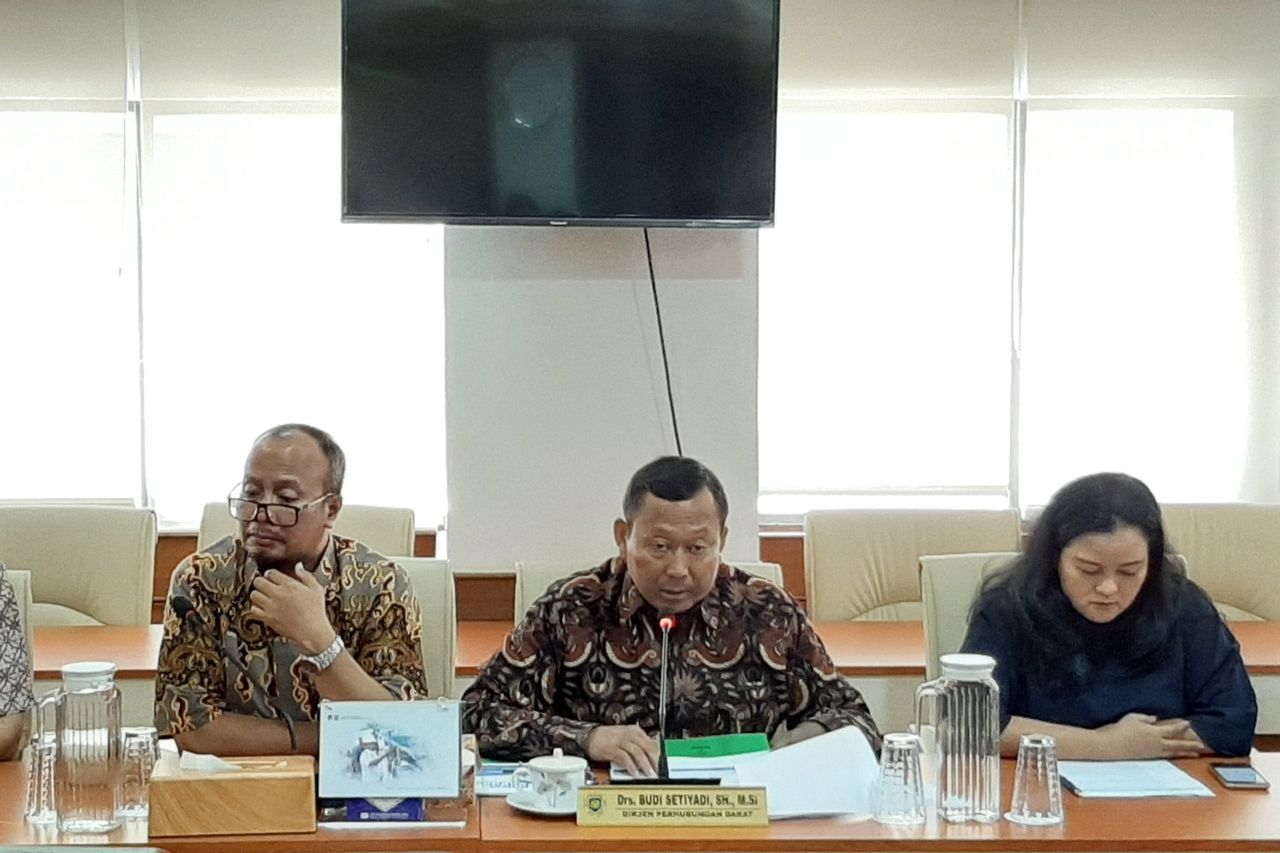Eight YLKI Notes Behind The Increase In Jabodetabek Online Ojek Rates

JAKARTA - The Ministry of Transportation has agreed to increase the floor price for online motorcycle taxis from IDR 2,000 per kilometer (km) to IDR 2,250 per km and the upper limit tariff from IDR 2,500 to IDR 2,650 per km. Before officially agreeing to increase the rate, the Ministry of Transportation has also coordinated with the Indonesian Consumers Foundation (YLKI).
YLKI Daily Chairman, Tulus Abadi, admitted that he also criticized the Ministry of Transportation regarding the basic reasons for the rate increase. At least, there are eight notes that have been submitted by his party to the Ministry of Transportation.
"The increase in ojol rates is not only agreeing or disagreeing. But a compromise for drivers and consumers. In the discussion, indeed, from the amount carried out to the end, the decision is still in the corridor of consumer affordability," he said, at the Office of the Ministry of Transportation, Jalan Medan Merdeka Barat, Jakarta, Tuesday, March 10.
First, said Tulus, YLKI reminded the Ministry of Transportation not to increase ojol rates only because of pressure in the form of demonstrations, which were addressed to the Ministry of Transportation. This is because public policy cannot be based on pressure.
"From a policy point of view, it should not be carried out just because of demonstrations. As a public policy it is not healthy. If it is done because of pressure from the masses and drivers, in the future I don't think it likes to press. The masses are pressing the government, it is a bad precedent. Public policy must be based on pressure. out of necessity, "he explained.
Then, continued Tulus, another note was the lowest level of safety for motorbikes, both for individuals, especially in the category of public transportation.
"This is a two-wheeler wherever the safety level is low. Even though the automotive industry doesn't exist for public transportation, the emergence of online motorcycle taxis is a historical accident, because the government has been late in responding to adequate and humane public transport," he said.
Third, said Tulus, in terms of transportation modes, especially ojol, the first scale is to prioritize safety aspects for drivers. Ministry of Transportation data from the Police and Jasa Raharja, 70 percent of accidents use motorbikes. "Traffic accidents in Indonesia are 30 thousand per year," he explained.
According to Tulus, the fourth record is about the services provided by service providers to service users. He said the facilities that were good at the beginning did not last until now. So, Tulus requested that the mask and shower cap facilities be given back by the service provider.
"Therefore, we asked for the initial policy of drivers to be equipped with masks and headgear. Moreover, it is currently the COVID-19 season. Mediators can be ojol. In Batam, Singaporeans get hit when they ride ojol and ojol drivers get hit. Raincoats are also important. So transportation is important. the general public must be equipped with consumer protection matters, "he explained.
The fifth note, said Tulus, was about pieces and all kinds. Sixth, for big cities like Jakarta, Ojol must be positioned as feeder transportation of ready mass transportation such as MRT, LRT, Trans Jakarta and all kinds. "Ojol is only a feeder for mass transportation," he explained.
"Seventh, in terms of safety and service, one of them is the quality of vehicles and drivers. We find drivers with disabilities, this is good for accommodating them. But so it is not safe to be positioned as drivers. Once there was also an online taxi driver who was hearing less. disabilities should not be at the forefront, "he continued.
The eighth note, said Tulus, which is no less important is that in terms of insurance, it must be guaranteed with existing insurance. "The minimum of Jasa Raharja is that every consumer transaction using public transportation must be protected by Jasa Raharja," he said.
